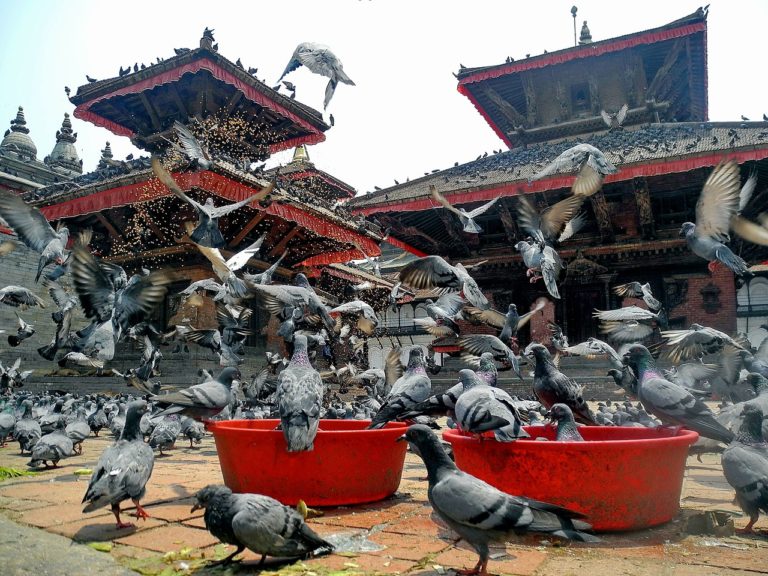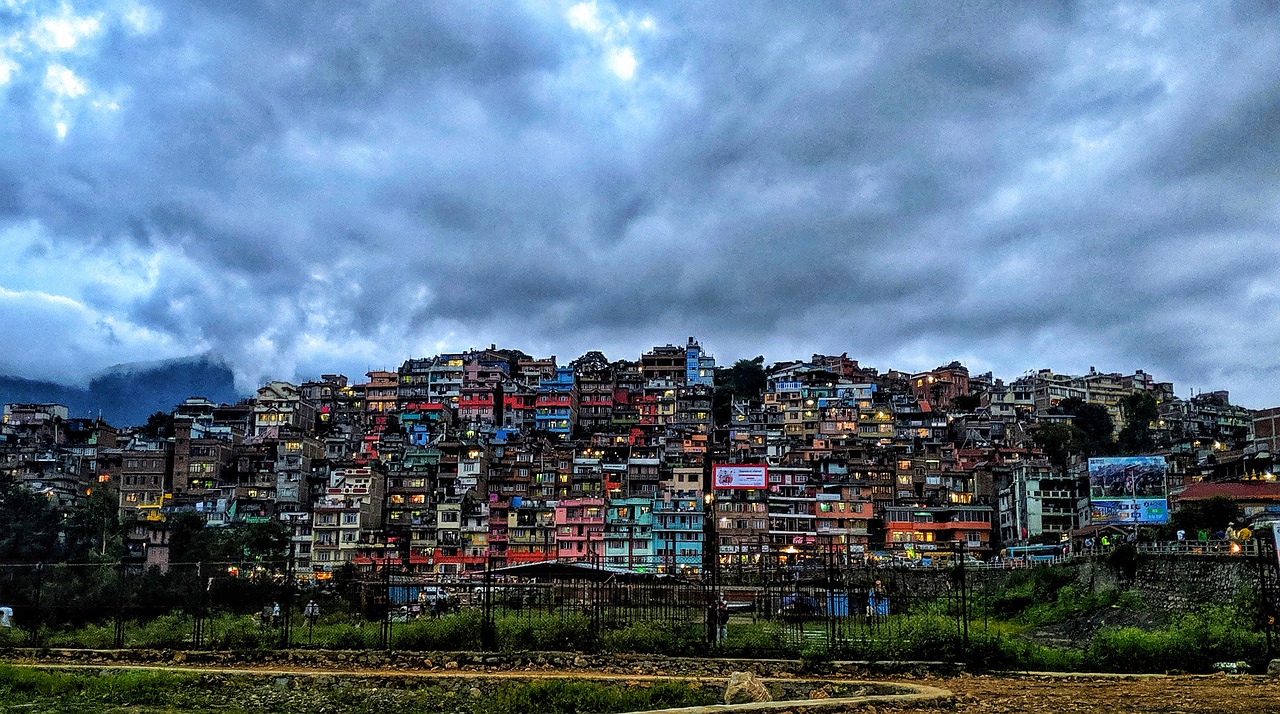
Covid is influencing organizations across enterprises and the globe, and the food industry is no special case especially in Nepal. Considering the episode, Nepalese food organizations are settling on troublesome choices like closing down activities and initiating travel boycotts and the effect doesn’t stop there.
Here’s how the Nepalese food industry is responding to coronavirus.
Consumers are stockpiling shelf-stable goods
Consumers in areas where coronavirus has hit are filling their cupboards with shelf-stable foods like canned goods, dried beans and rice, powdered milk, and plant-based milk. According to RamBahadur, sales of such products rose dramatically in the week ending March 7 “dried beans sales went up by 63%, rice by 58%, chickpeas/garbanzos by 47%, powdered milk products by 126%, water by 42%, and meat by 58% said Ram Bahadur”.Ram Bahadur is the local shopkeeper here in Kathmandu, Lainchour.
Although the frenzy purchasing lately has caused transitory item deficiencies, the country’s general food supply is fit as a fiddle to endure this hardship. Furthermore, some food organizations are making changes to their tasks because of expanding requests. For instance, Campbell Soup declared on March 4 that it would build soup creation. Furthermore, since eateries across the district are shut, General Stores has moved tasks at its handling plants to fill staple stock necessities rather than cafes. They’re additionally “running slaughterhouses at the full limit and on ends of the week” and hope to adjust market interest soon.

Investigators at Bernstein anticipate Covid will help producers of frozen and rack stable bundled food sources including Campbell Soup, Conagra Brands, General Mills, Kellogg, Mondelez International, and JM Smucker. Then, organizations that inventory the foodservice/QSR channel (e.g., Beyond Meat, Tyson Foods, McCormick) may “face close term headwinds in case of an enormous scope flare-up in the Nepal”
Buyers have been keeping away from new produce, dairy, and meat, yet not due to the more limited timeframe of realistic usability related to such items “customers are suspicious of new items that have gone far due to the improved probability of numerous human touchpoints before coming to the racks in the supermarket,” RamBahadur says.
Imports and fares are being upset
Nepal imports and fares billions of rupees worth of food from China consistently, and the COVID-19 episode is affecting. In February, Wai Foods and Nepal agrarian gatherings said that Covid is upsetting meat shipments from China. As China enters its recuperation stage, notwithstanding, laborers are returning and beginning to diminish port blockage.
The dairy business is additionally encountering disturbance the severe techniques needed for dairy fares could postpone supply and decrease costs.

The FDA explained that they are “not mindful of any reports during this season of human ailments that recommend COVID-19 can be sent by food or food bundling.” Still, Matthew Wadiak, the fellow benefactor of Blue Apron, proposes Covid will provoke organizations to source a greater amount of their grains and different wares locally.
After terminations, plants in China are starting to resume
Back in February, several companies decided to shut down operations in China. The food industry giants both closed factories in Wuhan the epicenter of the coronavirus outbreak.
However, food facilities in China are beginning to come back to life. General Store Foods has reopened some of its Chinese operations, and Nepal is benefiting it a lot due to the blockage of the food supply from China. Slowly it was getting normal after the first wave of Covid but the second wave destroyed it all and brought us back where we were.
A few organizations have diminished their monetary estimates
Utilization is dropping in Asia, making organizations reevaluate their monetary gauges. RamBahadur anticipates a deficiency of up to 5 lakhs in deals. Coca-Cola “doesn’t anticipate accomplishing its recently given monetary direction to 2020, as the adverse consequence of the COVID-19 pandemic has essentially expanded.”
Different organizations say it’s too early to tell how serious the monetary effects will be. Notwithstanding, General Mills is anticipating that food at home will be popular as schools and cafés close down around the country.
Makers are battling with new item dispatches
Expo scratch-offs and changes in purchaser purchasing practices are making difficulties for food and drink item improvement. Numerous organizations were depending on ideal freedoms to support their advertising endeavors and had arranged their item dispatches around career expo openings. While virtual exchange shows are a choice during these questionable occasions, it’s difficult to coordinate with the openness an actual career expo corner offers.
Presently isn’t the best an ideal opportunity to put another item on supermarket retires all things considered. Retailers and buyers are loading up on fundamentals, and any new items are probably going to lose all sense of direction in the mix. This is provoking dispatch delays as organizations center around guaranteeing an adequate stock of their present items.
Health illness of children
Due to less physical activities these days, children are more facing the problem of obesity. Children are consuming more than exercise. These things create a great risk factor for children and their immune systems. Obesity can likewise adjust insusceptible reactions, as has been appeared with the flu infection, prompting debilitated host protection and a more noteworthy possibility of a cytokine storm with Coronavirus 19.910 Finally, stoutness reduces lung work through more prominent obstruction in the aviation routes and more trouble in growing the lungs. At the point when patients with weight should be conceded to concentrated consideration units, it is trying to improve their oxygen immersion levels and ventilate them.

Supply chain disturption
Production network interruptions can happen attributable to human-made catastrophes and common disasters. Worldwide, a few examples happened in the past like the Gujarat tremor (2001), the wave in Japan (2011), the Indian Ocean quake, and the tidal wave (2004) (Gou and Lam 2019). Additionally, the flare-up of irresistible illness, Corona Virus Disease 2019 (COVID-19) has brought a worldwide misfortune for living souls, yet in addition practical exercises like assembling activities, inventory network, and coordinations, and a few different areas (Dolgui, Ivanov, and Sokolov 2020; Golan, Jernegan, and Linkov 2020; Haren and Simchi-Levi 2020; Hobbs 2020; Ivanov 2020a, 2020c; Ivanov and Dolgui 2020a; Iyengar et al. 2020; Linton and Vakil 2020; Remko 2020; Rowan and Laffey 2020).
Coronavirus pandemic has seriously affected the car area, the travel industry, avionics industry, oil industry, development industry, telecom area, food industry, and medical care industry (Chamola et al. 2020). Beginning cases were accounted for in December 2019 and saw as manifestations of pneumonia in the Wet Markets of Wuhan City in Hubei Province, China (Rothan and Byrareddy 2020), and later named as COVID-19. By noticing the gravity of wellbeing dangers caused because of the focused energy of the infection, World Health Organization (WHO) declared a Public Health Emergency of International Concern (PHEIC) on 30 January 2020 (Eurosurveillance Editorial Team 2020).
In only a couple a very long time of the episode of the infection, a generous level of dread and nervousness has been seen among individuals, and it likewise causes a mental effect on emotional well-being (WHO 2020c). Further, noticing the impact of erratic and uncontrolled disease with more than 118,000 cases in 114 nations over the world, the WHO assigned this infection as a COVID-19 Pandemic on 11 March 2020 (WHO 2020a).
Until now (June 15, 2020) 435,600 individuals have kicked the bucket everywhere on the globe, and it might likewise accept a lot more lives as 7.9 million individuals have tried positive and continuous development has been seen in the number of contaminations of COVID-19. In India, COVID-19 cases have arrived at 368,705 in the third seven-day stretch of June 2020 (Dong, Du, and Gardner 2020). Developing cases cause huge tension on the medical care inventory network for a dire requirement for individual defensive gear (PPE), veil, and drugs (Iyengar et al. 2020). This point is not really connected to Nepal but the same scenario is also happening here.